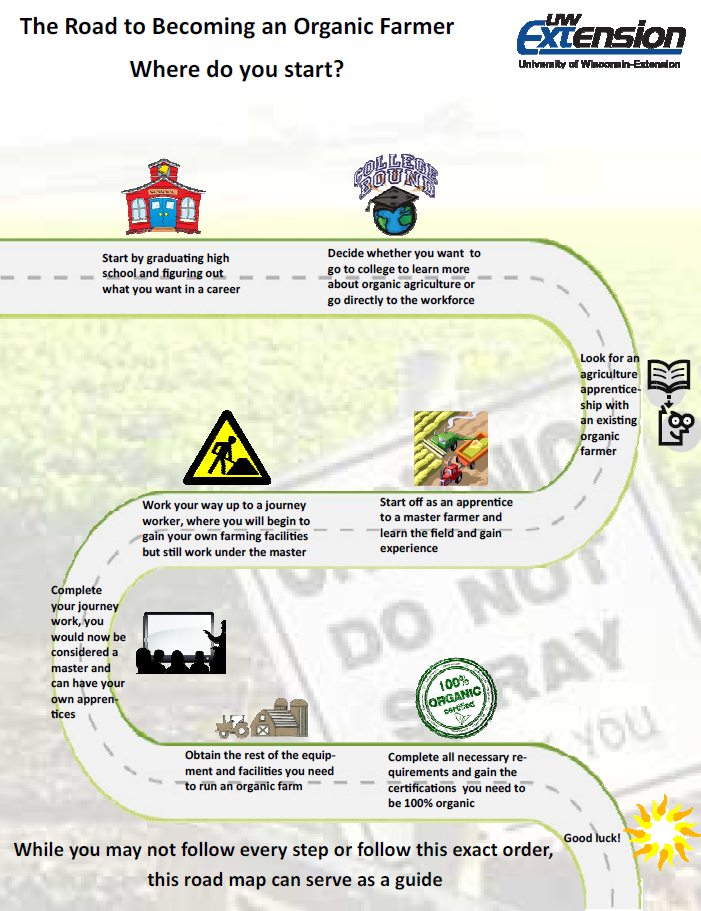What is the most rewarding part of this job? It is very rewarding to be building the food system and be involved in the new organic and sustainable food markets. It is also great to be a part of a sustainable agriculture community where the production of organic products is decentralized. This allows for diversified farms that have flexibility and less of an environmental impact.
Background Information: Organic farming is a type of agriculture that relies on different techniques such as crop rotation, green manure, compost, and biological pest control. Fertilizers and pesticides can be used by organic farmers only if they are considered natural, so this excludes any synthetically made fertilizers or pesticides, plant growth regulators, hormones, antibiotics, and genetically modified organisms (GMOs). Organic farms can produce anything that a non-organic farm can such as vegetables, beef, pork, eggs, corn, milk, and much more. There are also organizations like SLO (Sustainable Local Organic) Farmers’ Cooperative, that consist of organic farmers in the area that pool together their products to compete with larger production agriculture.
Experience/Education Needed: Although there is no required degree to be an organic farmer, there are many great opportunities to start off with an apprenticeship with an existing organic farm. This will help you learn the field and eventually help you to gain facilities for your farm.
Average Salary Range: Depending on what you are producing on the farm and the size of the farm, the average salary range for an organic farmer can be from $30,000 to $120,000.
Career Roadmap: These are the steps one might take to get to this career.
The best way to start this career journey is to look for apprenticeships with existing farms. In an apprenticeship program you will start as an apprentice with a mentor, move up to a journey worker and finally become a master, where you will be able to mentor others.




